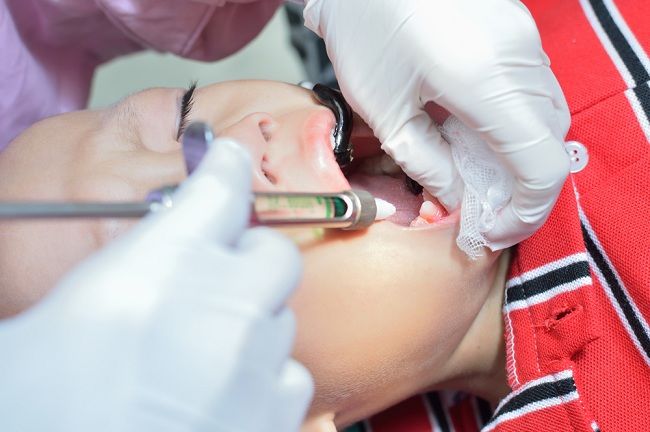Pregnancy poisoning is a medical condition that affects about 8 percent of pregnant women worldwide. If not detected and treated early, this condition can have a dangerous impact on the health of the mother and fetus.
Pregnancy poisoning is a term that was previously used to describe preeclampsia. This condition can appear after the pregnancy enters the age of over 20 weeks, at the end of the second or third trimester.

This potentially life-threatening condition cannot be prevented, and will generally go away after the baby is born. However, sometimes there are women who still experience preeclampsia even though the baby is born.
Symptoms of Pregnancy Poisoning
Symptoms of pregnancy poisoning vary widely and are different for every pregnant woman. Even a pregnant woman can experience pregnancy poisoning without feeling any symptoms.
However, common signs of preeclampsia are proteinuria or high protein in the urine and high blood pressure (hypertension) in pregnant women. These signs are usually only detected when undergoing routine pregnancy checks. Therefore, pregnant women need to regularly check their pregnancy regularly to the doctor.
In addition, pregnant women who experience pregnancy poisoning may experience the following symptoms:
- Impaired vision or blurred vision.
- Pain just below the ribs.
- Severe headache.
- Stomach pain.
- Hard to breathe.
- The amount of urine decreases during urination.
- Edema or swelling of the face, hands, and feet.
The exact cause of pregnancy poisoning is still a mystery. But so far, experts suspect preeclampsia occurs due to a placenta that does not develop properly due to disorders of the blood vessels. When there is a disruption in the placenta, the blood flow between the mother and baby is disrupted. This abnormality is thought to be a contributing factor to preeclampsia.
People at Risk for Pregnancy Poisoning
There are several factors that make some women more at risk for pregnancy poisoning, namely:
- Pregnant over the age of 40 years or under 20 years.
- The lag between current and previous pregnancies is more than 10 years.
- Pregnant with twins.
- Suffered from certain diseases, such as hypertension, kidney disease, antiphospholipid syndrome, lupus, or diabetes before becoming pregnant.
- Have had preeclampsia in a previous pregnancy.
- Obesity.
- Pregnant for the first time.
- Have a family (sister or mother) who has had preeclampsia.
If you are at high risk for pregnancy poisoning, then you need to consult a gynecologist for further examination. To reduce the risk of pregnancy poisoning, your doctor may give you a low dose of aspirin (75 mg) every day, starting from the third month of pregnancy until the baby is born.
Keep in mind, the purpose of giving aspirin is as a prevention effort, and not to treat pregnancy poisoning. Do not take aspirin unless your doctor has advised you to.
If this condition is not treated early, it can develop into a serious complication called eclampsia. If it has an impact on organs, such as the brain, liver, and kidneys, pregnancy poisoning can have serious and life-threatening consequences.









